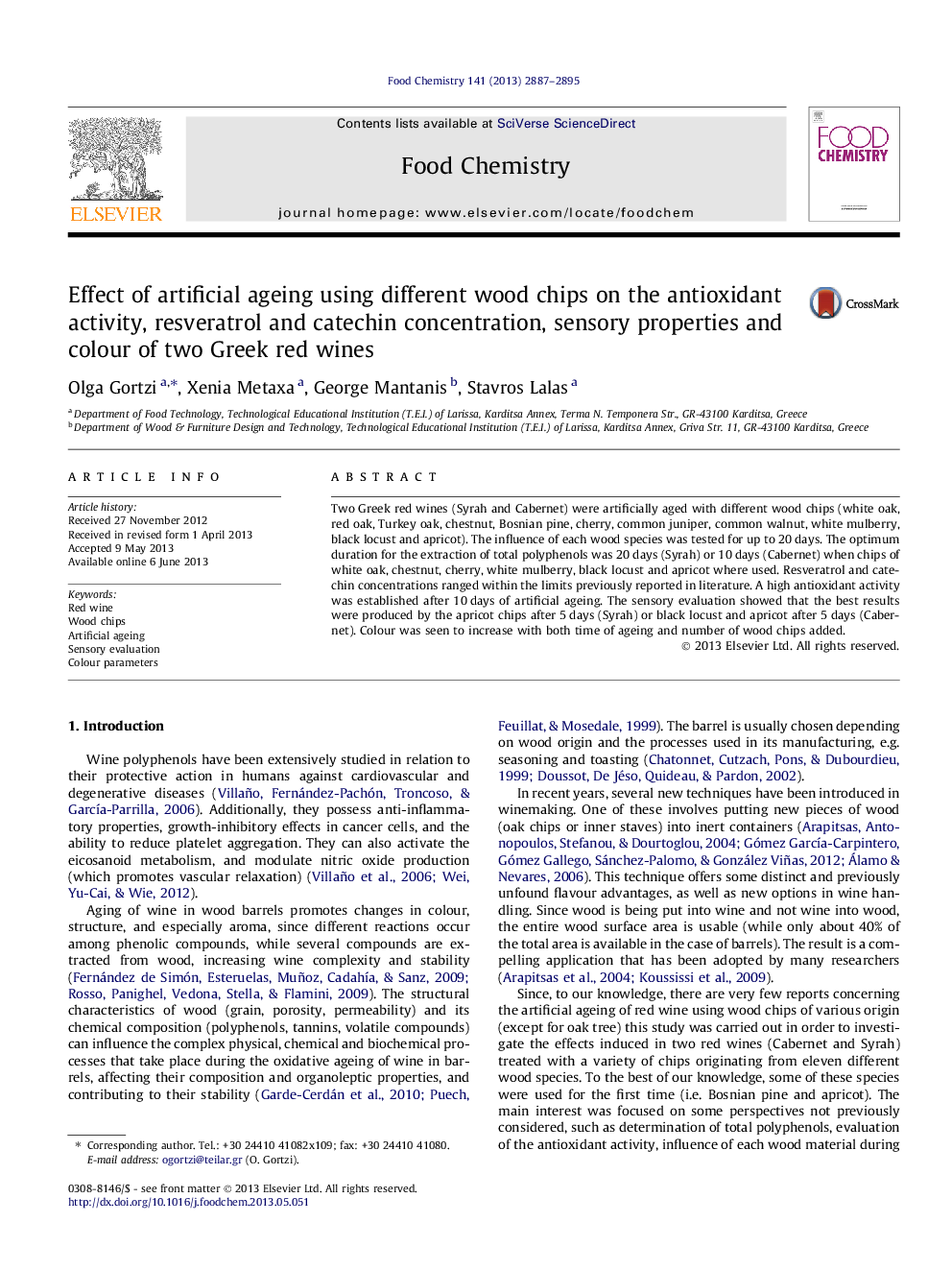| Article ID | Journal | Published Year | Pages | File Type |
|---|---|---|---|---|
| 10540317 | Food Chemistry | 2013 | 9 Pages |
Abstract
Two Greek red wines (Syrah and Cabernet) were artificially aged with different wood chips (white oak, red oak, Turkey oak, chestnut, Bosnian pine, cherry, common juniper, common walnut, white mulberry, black locust and apricot). The influence of each wood species was tested for up to 20Â days. The optimum duration for the extraction of total polyphenols was 20Â days (Syrah) or 10Â days (Cabernet) when chips of white oak, chestnut, cherry, white mulberry, black locust and apricot where used. Resveratrol and catechin concentrations ranged within the limits previously reported in literature. A high antioxidant activity was established after 10Â days of artificial ageing. The sensory evaluation showed that the best results were produced by the apricot chips after 5Â days (Syrah) or black locust and apricot after 5Â days (Cabernet). Colour was seen to increase with both time of ageing and number of wood chips added.
Related Topics
Physical Sciences and Engineering
Chemistry
Analytical Chemistry
Authors
Olga Gortzi, Xenia Metaxa, George Mantanis, Stavros Lalas,
